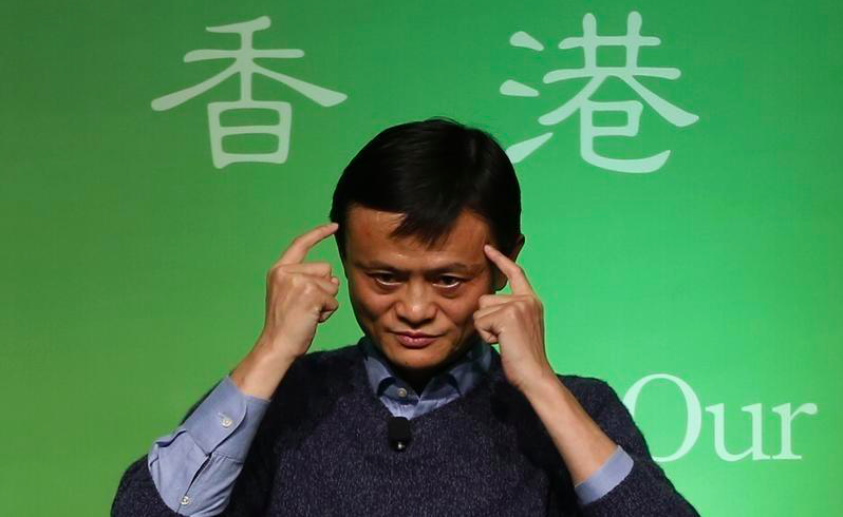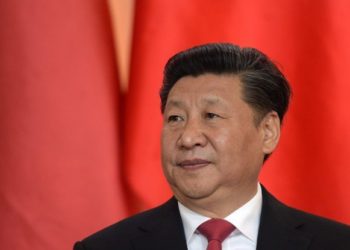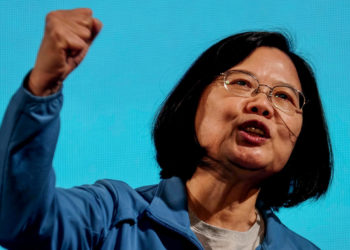China is buzzing with a revived interest in the past – specifically dinosaurs. A recent Smithsonian article detailed a boom in research and tourist activity around the excavation of dinosaur remains that are over 100 million years old. The irony is not lost in a country that otherwise embraces forward thinking in all facets of life including urbanization, industry, and technology.
Through future-centered initiatives such as sustainable infrastructure and technologies targeting economic and social sectors, China is quietly building a global presence in spheres that are being increasingly vacated by Western countries. For example, China has overtaken the U.S. in the volume of research paper publications in scientific fields, according to the U.S. National Science Foundation. Furthermore, China’s belt and road initiative appears to be the 21st century’s most comprehensive and transformative economic integration project, with implications for countries on every continent.
Artificial intelligence (AI) is one area in which China is making a significant global impact. AI is supported by computer systems and mechanical applications that operate not solely on code (instructions from a programmer) but on learning that enables autonomous reprogramming. In other words, AI can be seen as a technology with self-evolutionary abilities. Related advancements in big data, cloud computing, and processing capacity have enabled AI to grow rapidly, heralding a new generation of technology that has disruptive potential in nearly every sphere of life.
Between 2010 and 2014, the U.S. lodged more AI-related patent applications than any other country in the world (15,317), nearly twice that of second-place China. However, China is currently making an integrated and government-backed push to become the global leader in AI by 2030. In the view of a recent New York Times article, China is approaching AI like the U.S. did the groundbreaking 1969 Apollo 11 lunar mission.
China’s AI push is a decidedly multi-sectoral endeavor. By enabling government policies and fiscal backing, the private sector is instrumental in this effort. According to a CB Insights report, 48 percent of global equity funding for AI in 2017 went to China, compared to 38 percent for the U.S.
Chinese tech giants Alibaba and Tencent have committed substantial resources to develop AI, recruiting the country’s best engineers and scientists to research parks that rival Silicon Valley’s in scale and sophistication (and possibly threatening the talent capacity and status of the country’s research universities). Beijing’s recent announcement to build a $2 billion AI technology park, which is planned to house 400 enterprises, is one example.
China’s Artificial Intelligence Potential
In a sign of China’s AI potential, 2014 start-up SenseTime was recently valued at more than $4.5 billion; the company plans to apply incoming capital towards the marketization of AI in industrial settings. With recent equity infusions of over $1 billion in 2018 alone, SenseTime is also playing a crucial role in the development of China’s facial recognition-based surveillance programs, among its many other industry collaborations.
Facial recognition, supported by AI, is one technology of which China has been the subject of both praise and concern. Aside from supporting benign applications such as digital consumer payments, the technology has already been used to apprehend criminals who have appeared in public spaces in China. There is some concern that enforcement of even minor offenses such as jaywalking will now become ubiquitous due to increasingly sophisticated surveillance methods. One could expect such technological capacity to dovetail conveniently with the rollout of China’s proposed “social credit” system.
Setting aside the usual debates about democracy, privacy, and administrative transparency – all of which are legitimate concerns deserving their own analysis – the fact remains that China is charging ahead with the development of a technology that will likely transform 21st-century economies and societies. China also faces less public opposition – as a practical matter – to citizen monitoring and related data collection. Such concerns may well exist within China’s public, but it is not clear that they receive the attention they would in the U.S. This is a distinct advantage for China.
China’s political and fiscal ability to execute grand visions may now be unparalleled across the world. One example is the country’s high-speed rail network, which went from infancy to the world’s largest in fewer than two decades.
Further, as China’s entrepreneurial culture matures, the pent-up creative capacity of over a billion people is being liberated, with significant implications for innovation and investment. China provides numerous test-beds for technology, and “going global” is an alluring and realistic prospect for many of China’s well educated and ambitious entrepreneurs. The government has not vacated the innovation space either, committing to global status for its research universities. Many of China’s most capable science and engineering students, educated in the West, are opting to return home. A recent ranking of American universities by AI activity includes many – Carnegie Mellon, Stanford, MIT, and UC Berkeley – that have significant brand visibility in China, and educate many Chinese students.
In conjunction with China’s AI ambitions, a vacuum of American AI leadership could be emerging under President Donald Trump‘s administration, whose 2018 budget includes a 15 percent decrease in science and technology research.
While American companies like Google, Amazon, and Microsoft continue to invest significant effort and resources in AI research and development, much of this work is done outside the U.S., a globalizing approach that Alibaba and Baidu are also adopting.
However, China’s effort to “go global” with AI also includes government partnerships such as a recent agreement with Singapore – the world’s leader in AI research as measured by citation impact – to sandbox-test AI-based solutions in the healthcare and banking sectors. The current U.S. administration seems to show little interest in such official partnerships.
In closing, it is useful to consider the extent to which the American economy historically benefitted from government investment in technology, as the development of military systems into the 1960s launched a generation of transformational innovation (including the internet) and continues to fuel research and commercial activity in Silicon Valley. In the 21st century, China is adopting the same single-mindedness of purpose that drove American technological leadership in the 20th century.
China’s rise in AI and other technologies will have global economic, social, and diplomatic implications that will resonate for decades. The U.S. and other Western nations must strengthen their ambition to remain competitive.
Disclaimer: The views and opinions expressed here are those of the author and do not necessarily reflect the editorial position of The Globe Post.




















